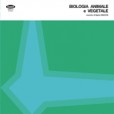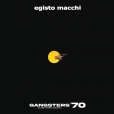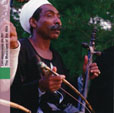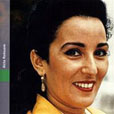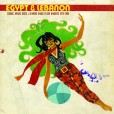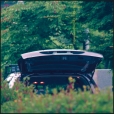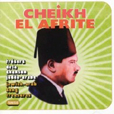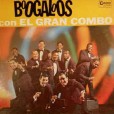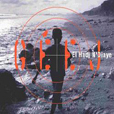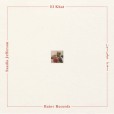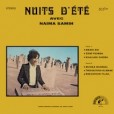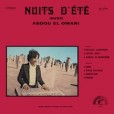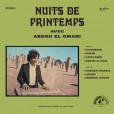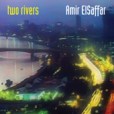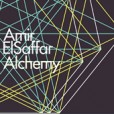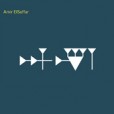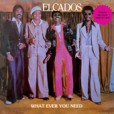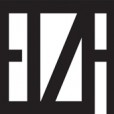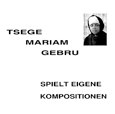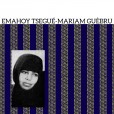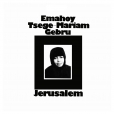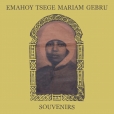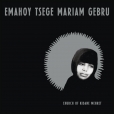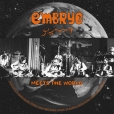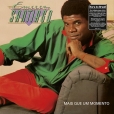Your basket is empty

Created in collaboration with Walter Branchi from the Gruppo di Improvvisazione Nuova Consonanza, this soundtrack to Mino Guerrini’s 1968 film is among the most strikingly experimental of all Macchi’s music for cinema. A suspenseful, jet-propelled fresh mix of
psychedelia, jazz, and improv, threaded with beautiful melodies.
The first time out; from the master tapes.
Epic poetry wrapped up in the rabab viol (a coconut shell covered with fish skin, with a long, spiked handle, two horsehair strings), the vertical suffara flute, the arghul double clarinet, droning and melodious.
Intense Moroccan singer improvisatorially lighting up the rare, refined nineteenth century wasla style, in suite form, with chamber orchestra — qanun zither, ud lute, kaman violin and riqq percussion.
The ‘little devil’ was born in Tunis in 1884 to a Libyan mother and Moroccan dad. The first half of the twentieth century was a golden era in Tunisian music; Cheikh El Afrite its most celebrated artist. As a youngster he became fluent in its mix of classical Arab-Andalous and Ottoman traditions with folk idioms like bedouin and other African melodies, fondo and fezzani, and the festive tripolitain music of Libya. Turning professional at eighteen, he was soon singing for the bey every Tuesday night, at his seaside palace in Hammam Lif. Later, his recordings made him star throughout the Maghreb.
Scintillating Senegalese finger-picking.
Raw, rocking cannibalisations of Yemeni folk — with dashes of dabke, trance and Mulatu Astatke — at moments using junk made to sound like age-old lutes and percussion.
The second volume in Abdou’s unmissable Nuits trio of LPs, this time featuring his Casablanca home-girl, sahrawi diva Naima Samih.
Giddy psych, funk, jazz and electronica freak-outs from Casablanca. A combination of original compositions and folk tunes, crazily blending together Abdou’s wigging organ, rough beat boxes, wayward kit-drumming and crisp north African percussion, a little Hank Marvin and some sporting sing-a-long, and plenty of unfit-to-drive reverb and tape delay. A facsimile reissue of this collectors’ item, first out in 1976. Ace.
Initially the Moonrakers, formed in Kanu in 1968, by Steve Black, Rocky Mustapha, Tony Nosika and Frank Martins. This is their swansong, a decade later: irie Afro-disco.
Utterly beautiful solo-piano explorations in African folk, spiritual meditation, Satie-esque classicism and Tatum-esque jazz, by this Ethiopian nun, making her 1963 LP debut, recorded in Germany. Stunning; highly recommended.
‘Gebru is a true original,’ says the label. ‘Her playing is somewhere between Satie, Debussy, the liturgical music of the Coptic Ethiopian Church, and Ethiopian traditional music. It is some of the most moving piano music you will ever hear! All original compositions available for the first time on vinyl beyond the original early 1960s editions, which are completely impossible to find. Old school tip-on cover with gold foil printing. A must-have masterpiece for anyone who needs some spiritual comfort.’
‘Emahoy recorded these songs direct to cassette tape in her family’s home in Addis Ababa in the late 70s. She carried the master tapes with her when she entered permanent exile in Jerusalem in 1985. They stayed in her tiny cell at the Church of Kidane Mehret until her passing, in March 2023, aged 99.
‘I was on my way to see Emahoy and talk about the release of these songs when she passed away. While helping her family clear and pack her belongings, we found the original master tapes, from which this album is produced. Intimate, close, home recordings. You can hear Emahoy’s finger pressing down the stop button, the creak of her piano bench, birds out the window.
‘These are songs of mourning and exile. The Ethiopian Revolution of 1974 had changed her country so radically that Emahoy sang of missing home even though she was still physically in the country.
‘Emahoy wanted badly for these songs to be heard. She was proud of them, and even produced a tiny run of private press CDs sold at the gift shop of the monastery in 2013. But her family and those closest to her advised her against the release, worried about the intense backlash she’d receive for singing as a nun in the conservative Orthodox church.
‘Finally, these recordings get the release they deserve. We hope to do justice to the music and Emahoy’s legacy with this release — packaged in a reflective gold sleeve, with a sixteen-page booklet featuring lyric translations and photos of Emahoy’s life in the monastery in Jerusalem.’
(Cyrus, Mississippi Records).
Her 1972 private-press LP, plus two unreleased piano recordings, mapping out a deeply personal take on Ethiopian Church Music.
Here is Emahoy’s most directly sacred and spiritual music-making — and some of her most moving — self-recorded in churches across Jerusalem, on piano, harmonium, and pipe organ.
With extensive biographical notes by Thomas Feng. Beautifully remastered. Old school tip-on jacket with silver-foil stamping. Black or clear vinyl.
Classic Brazilian boogie, from 1983; including a killer version of Tania Maria’s Come With Me — Vem Menina — and the dancefloor smash O Amigo De Nova York.
